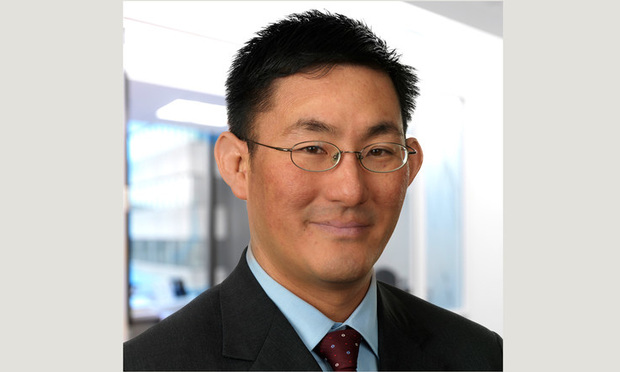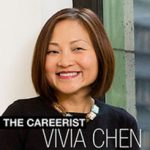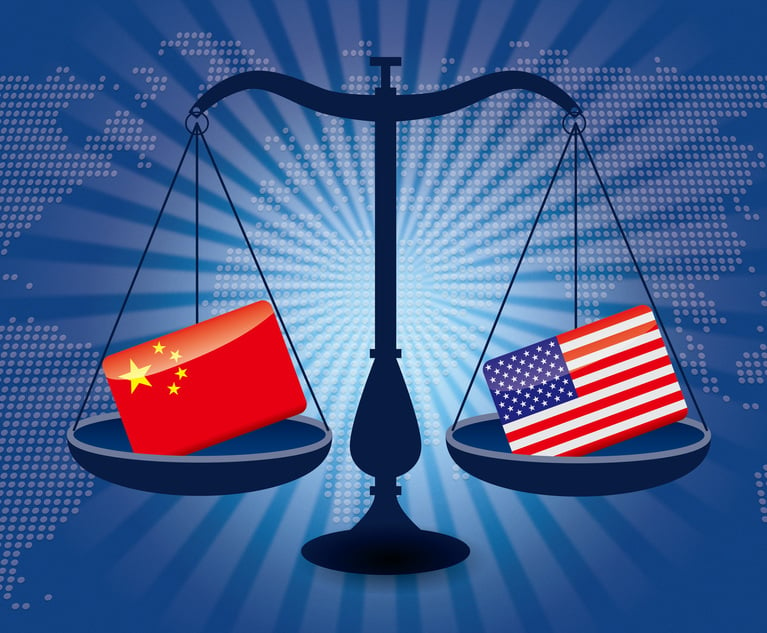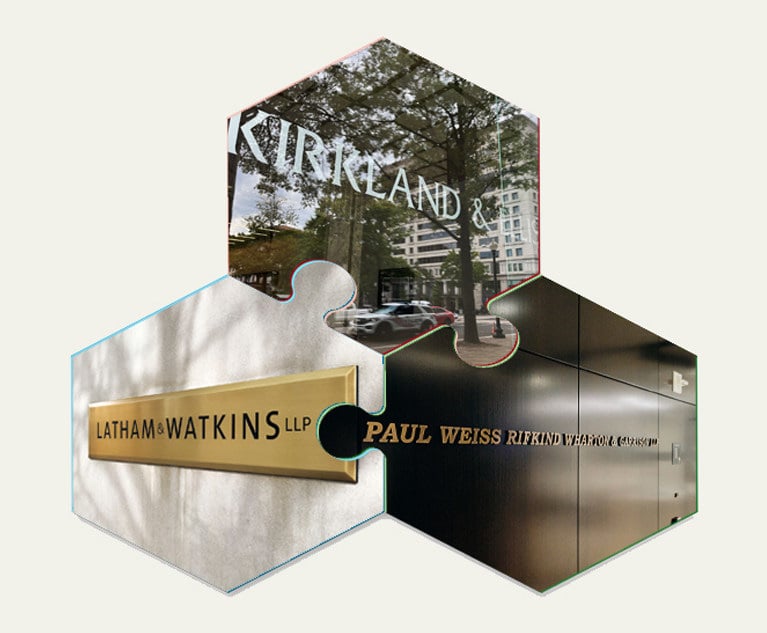Fenwick & West Is Chock-Full of Asian American Lawyers
For those of us who remember being the only Asian (and female) lawyer in a meeting, it seems amazing that there's now a major firm where nearly one in four lawyers is Asian.
June 20, 2019 at 06:06 PM
5 minute read
 Felix Lee. Courtesy photo
Felix Lee. Courtesy photo
It's not quite Caltech. But it's arguably the MIT of Big Law.
For whatever reason, Asian Americans seem to be flocking to Fenwick & West. According to The American Lawyer 2019 Diversity Scorecard, Fenwick has the highest percentage of Asian American lawyers among Am Law 200 firms—23.4% of all lawyers, including 9.9% partners. That 23.4% makes Fenwick almost comparable to MIT's 25.7% Asian undergraduate population—though far less than Caltech's over 50% figure.
But before we explore Fenwick's particular track record on this front, let's get a quick snapshot at Am Law 200 firms with 15% or higher Asian Pacific American (APA) lawyer rates:
- Fenwick—23.4%
- Knobbe Martens—20.6%
- Wilson Sonsini Goodrich & Rosati—18%
- Fragomen—17%
- Davis Polk & Wardwell and Shearman & Sterling—16.9%
- Morrison & Foerster—16.7%
- Finnegan, Henderson, Farabow, Garrett & Dunner—15.7%
- Paul Hastings—15.5%
- White & Case—15%
Those numbers are fairly encouraging, though Fenwick's statistic puts it ahead of the pack. Indeed, for those of us who remember being the only Asian (and female) lawyer in a conference room, it seems amazing that there's now a major firm where nearly one in four lawyers is Asian.
 So I decided to find out how Fenwick became a magnet for APA lawyers. Below is an edited version of my conversation with Felix Lee, a securities enforcement and litigation partner at the firm who's been heading its diversity and inclusion committee for over 10 years.
So I decided to find out how Fenwick became a magnet for APA lawyers. Below is an edited version of my conversation with Felix Lee, a securities enforcement and litigation partner at the firm who's been heading its diversity and inclusion committee for over 10 years.
Why are there so many Asian American lawyers at Fenwick? Did that just happen organically or was there a big effort to go out there and get some? It's a combination of both. When I joined the firm [as a lateral from Brobeck, Phleger & Harrison] in the early 2000s, Fenwick had already reached a critical mass of Asian American attorneys. And having that critical mass allows you to snowball. And it means that you can transition those lawyers into leadership roles and partnership. It's the culmination of decades of work. And we've done that in every department in the firm. And, of course, being in the Bay Area gives you a natural advantage.
So Asian Americans aren't all nerdy IP types. But do a large percentage of them have science or tech backgrounds? Some do and some don't. It's not a necessity. But we do have a practice that's focused on tech. We tell people they don't need a tech background, but you need some fluency in the area. It's not a place for Luddites. I had a political science background in college, though I did build a computer in my spare time.
Wait. You made your own computer? I don't think most poli sci majors do that in their spare time. Well, I guess I fulfill a certain stereotype.
You mentioned that being in Bay Area makes recruiting Asian Americans easier. Do you think Fenwick's record on APA stands out in Silicon Valley or is it not a big deal here? The gap is not so big in the Bay area. But I think our numbers are better with respect to our competitors. The firm has a long-standing commitment to diversity, and management at the highest levels has bought into it. The firm chair and multiple members of the executive committee sit on the diversity committee. They are often the ones who are most vocal, and some of them are white males. You can't put the onus on people who are diverse. If you do that, when diverse people start lobbying for change, it sounds self-serving.
Is the diversity committee open to everyone at the firm? No. It's already a 25-person committee; any larger, it gets unwieldy. When we decide on the composition, the main consideration is that it be diverse and that it represents the ethnic background and practice areas and gender. We also make sure there's enough from management so that it can effect change. They sit alongside fourth-year associates. It makes for an interesting laboratory. A lot of ideas have fomented from that environment. For instance, we started to expand the law schools we look at in order to identify underrepresented minorities. We need to do better with African Americans and Hispanics, and we make concerted efforts to expand the lens.
You've headed the diversity committee for over 10 years. So what's the next frontier? Before the focus was on overt bias. Now the shift is to unconscious bias—and that applies not just to people in the majority. Everyone can engage in unconscious bias. We also want to focus on other under-represented groups. Not that we don't have more work to do on the Asian American front, but I think we have reached critical mass.
They've reached critical mass, but are they on key committees, like the management or executive committees? Rajiv Patel, who's head of the IP group, sits on the executive committee. People cycle off and on, and currently, he's the only Asian American. There are areas that we need to improve. To say that we're a good firm by law firm standards is not a high bar; we try not to measure ourselves by those standards. At the same time, though, you don't want to dwell only on the negatives—that can get you depressed.
Related posts: Asian American Woman Is New Leader at Elite Law Firm.
Contact Vivia Chen at [email protected]. On Twitter: @lawcareerist.
This content has been archived. It is available through our partners, LexisNexis® and Bloomberg Law.
To view this content, please continue to their sites.
Not a Lexis Subscriber?
Subscribe Now
Not a Bloomberg Law Subscriber?
Subscribe Now
NOT FOR REPRINT
© 2025 ALM Global, LLC, All Rights Reserved. Request academic re-use from www.copyright.com. All other uses, submit a request to [email protected]. For more information visit Asset & Logo Licensing.
You Might Like
View All

Letter from Asia: As American Firms Retreat, Will Loyal UK Firms Regain Market Share In Asia?


Change Is Coming With the New Trump Era. For Big Law, Change Is Already Here
6 minute readTrending Stories
- 1'Shame on Us': Lawyer Hits Hard After Judge's Suicide
- 2Upholding the Integrity of the Rule of Law Amid Trump 2.0
- 3Connecticut Movers: New Laterals, Expanding Teams
- 4Eliminating Judicial Exceptions: The Promise of the Patent Eligibility Restoration Act
- 5AI in Legal: Disruptive Potential and Practical Realities
Who Got The Work
J. Brugh Lower of Gibbons has entered an appearance for industrial equipment supplier Devco Corporation in a pending trademark infringement lawsuit. The suit, accusing the defendant of selling knock-off Graco products, was filed Dec. 18 in New Jersey District Court by Rivkin Radler on behalf of Graco Inc. and Graco Minnesota. The case, assigned to U.S. District Judge Zahid N. Quraishi, is 3:24-cv-11294, Graco Inc. et al v. Devco Corporation.
Who Got The Work
Rebecca Maller-Stein and Kent A. Yalowitz of Arnold & Porter Kaye Scholer have entered their appearances for Hanaco Venture Capital and its executives, Lior Prosor and David Frankel, in a pending securities lawsuit. The action, filed on Dec. 24 in New York Southern District Court by Zell, Aron & Co. on behalf of Goldeneye Advisors, accuses the defendants of negligently and fraudulently managing the plaintiff's $1 million investment. The case, assigned to U.S. District Judge Vernon S. Broderick, is 1:24-cv-09918, Goldeneye Advisors, LLC v. Hanaco Venture Capital, Ltd. et al.
Who Got The Work
Attorneys from A&O Shearman has stepped in as defense counsel for Toronto-Dominion Bank and other defendants in a pending securities class action. The suit, filed Dec. 11 in New York Southern District Court by Bleichmar Fonti & Auld, accuses the defendants of concealing the bank's 'pervasive' deficiencies in regards to its compliance with the Bank Secrecy Act and the quality of its anti-money laundering controls. The case, assigned to U.S. District Judge Arun Subramanian, is 1:24-cv-09445, Gonzalez v. The Toronto-Dominion Bank et al.
Who Got The Work
Crown Castle International, a Pennsylvania company providing shared communications infrastructure, has turned to Luke D. Wolf of Gordon Rees Scully Mansukhani to fend off a pending breach-of-contract lawsuit. The court action, filed Nov. 25 in Michigan Eastern District Court by Hooper Hathaway PC on behalf of The Town Residences LLC, accuses Crown Castle of failing to transfer approximately $30,000 in utility payments from T-Mobile in breach of a roof-top lease and assignment agreement. The case, assigned to U.S. District Judge Susan K. Declercq, is 2:24-cv-13131, The Town Residences LLC v. T-Mobile US, Inc. et al.
Who Got The Work
Wilfred P. Coronato and Daniel M. Schwartz of McCarter & English have stepped in as defense counsel to Electrolux Home Products Inc. in a pending product liability lawsuit. The court action, filed Nov. 26 in New York Eastern District Court by Poulos Lopiccolo PC and Nagel Rice LLP on behalf of David Stern, alleges that the defendant's refrigerators’ drawers and shelving repeatedly break and fall apart within months after purchase. The case, assigned to U.S. District Judge Joan M. Azrack, is 2:24-cv-08204, Stern v. Electrolux Home Products, Inc.
Featured Firms
Law Offices of Gary Martin Hays & Associates, P.C.
(470) 294-1674
Law Offices of Mark E. Salomone
(857) 444-6468
Smith & Hassler
(713) 739-1250










